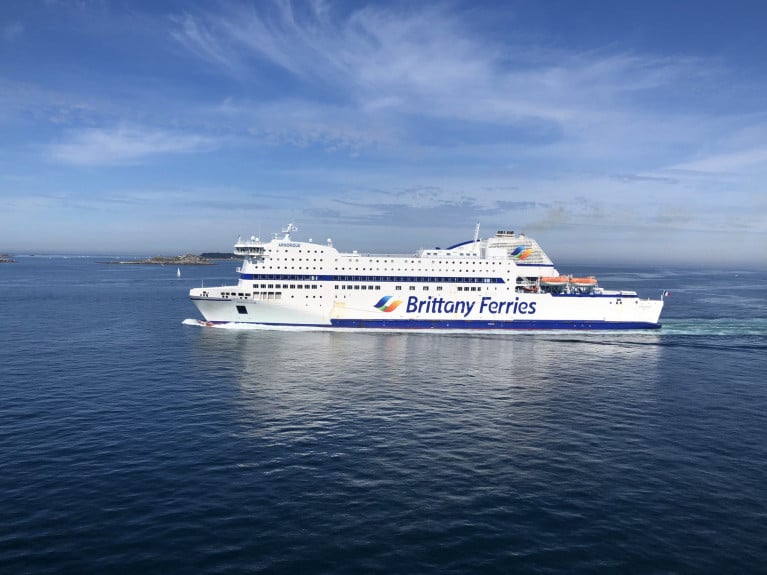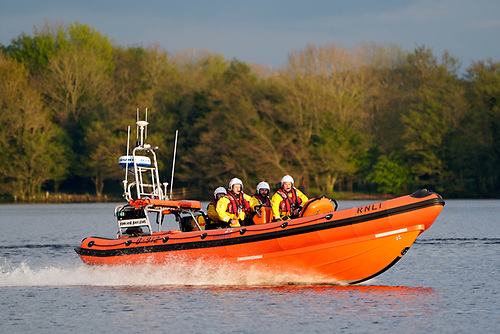Displaying items by tag: 2nd Cruiseferry (2021)
Brittany Ferries Summer Sailings Operating Plus Second Cork-Roscoff Cruiseferry for Season '2021'
Brittany Ferries flagship began Cork-Roscoff seasonal service earlier this month following lifting of Covid-19 restrictions and notably another cruiseferry is to enter the popular Ireland-France route too but not until 2021, writes Jehan Ashmore
Asides the current routine Saturday afternoon departures from the Port of Cork by flagship cruiseferry Pont-Aven which arrives to the Breton port on the Sunday morning, Afloat has noted on the Brittany Ferries website that there will be the added choice next year to board another cruiseferry. This is to be the Armorique offering a Wednesday afternoon departure from Ireland with an arrival on Thursday morning at the Breton port in north-west France.
The development is apparently only referred once on the website in regards to the new Irish role for Armorique's Wednesday departures see within brackets (new for 2021).
Afloat also consulted the booking section which revealed Armorique's first outward sailing, Cork-Roscoff is scheduled for Wednesday, 24 March followed three days later with Pont-Aven departing on Saturday, 27 March 2021.
Armorique has actually previously called to the Port of Cork last year on foot of standing in for Pont-Aven which had hydraulic and beforehand engine-trouble with repairs both taking place at Damen Shiprepairs, Brest.
The introduction in next year's season of the Armorique will increase overnight ferry departures to twice a week on the Cork-Roscoff route. Luxury facilities of the cruiseferry are available for 1,500 passengers and accommodation comprises of 247 cabins and reserved seat lounges for 336 and space for 470 cars.
Also according to the ferry website, Afloat noted the Pont-Aven's sailing times (from Cork) take 14 hours however with next year's seasonal newcomer Armorique are timetabled for an 18 hour passage. As for sailing duration times (from Roscoff) both cruiseferries sailings are reduced. Two hours for those operated by the Pont-Aven and three hours served by Armorique.
Currently Armorique operates routine daily Roscoff-Plymouth sailings on the English Channel route which saw the custom Finnish (STX Europe) built cruiseferry enter service in 2009. The Armorique takes her name from an area of north west France meaning 'the country that faces the sea' and follows a predessor of the same name that launched the Cork-Roscoff route more than four decades ago in 1978. Pont-Aven also operates in tandem on the France-UK route, which was Brittany Ferries first route when launched in 1973.
This afternoon Pont-Aven is scheduled at 16.00hrs to depart Ringaskiddy Ferry Terminal in lower Cork Harbour on the overnight crossing of the Celtic Sea to Roscoff.
In addition Brittany Ferries which closed the Cork-Santander earlier this year and switched both Irish and Spanish ports to begin a new Rosslare-Bilbao route served by ropax Kerry and on an 'économie' service has resumed for passengers. As the Kerry had operated throughout the height of the Covid-19 restrictions by maintaining the Ireland-Spain link albeit in a freight-only mode.
The French operator had intended to launch a second new route out of Rosslare Europort, however Covid-19 also impacted the new Rosslare-Roscoff route which was due to open in March. This never materilised due to restrictions from governments and by the ferry company itself in the interests of crew.
Rosslare-Roscoff sailings finally launched late last month on 29 June (later than planned due to Covid-19). This route is also branded under the économie banner as the ropax Kerry has no-frills facilities compared to the luxurious Cork-Roscoff serving flagship cruiseferry.
The Ireland-France route along with Rosslare-Cherbourg in neighbouring Normandy was abandoned by Irish Ferries following the debut of W.B. Yeats operating instead out of Dublin Port but still retains the connection to the port located at the tip of the Contentin Peninsula in northern France.
Returning to Brittany Ferries which will continue operating both the seasonal Ireland-France routes until late October, whereas the Rosslare-Bilbao remains a year round service. Noting the Ireland-Spain overnight service subject to the sailing taken can involve up to 2 nights on board.
For Coronavirus updates, travel advice click here with important links.





























































